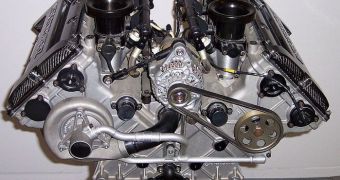Scientists at the University of Wisconsin-Madison (UWM) announce the development of a new type of gasoline engine that they say could revolutionize the way automakers design and build their cars. The innovation consists of engine blocs that are extremely efficient in preserving fuel, and thus reducing consumption and increasing mileage. The UWM group says that their engines can reduce gasoline consumption by up to 30 percent in regular vehicles, and by up to 20 percent in heavy trucks. With the soaring prices of fossil fuels, and the current economic crisis, their work is bound to get a lot of attention, Technology Review reports.
An added advantage of the new engines is the fact that they would add nothing to the overall costs of cars employing them. The technology that powers them is not very expensive, and buyers would feel little effects on their budgets when buying cars outfitted with the new engines. A marked difference in prices will, however, be felt by people looking to buy trucks. Costs are bound to spiral down, as the increased engine efficiency will eliminate the need for installing expensive after-treatment systems on large vehicles. Such measures are usually taken in order to reduce emission levels.
The bases of the new technologies are precise electronic fuel injection methods and advancements in computer simulations. The UWM team says that the engines become so efficient because the mixture of fuels that is injected in the combustion chamber is very precisely controlled. The motors no longer run on gasoline alone. Two distinct fuels will be used in the new mechanisms, the group reveals, and it's precisely this combination that will allow drivers to accurately control the way burning is achieved. According to UWM professor of mechanical engineering Rolf Reitz, the new approach could represent an alternative to more expensive electric/hybrid engines.
However, the scientist admits that the efficiency of the new engines could be augmented even further by placing them inside hybrid cars. Speaking about the fuel mixing process, Reitz explains, “We discovered this process using advanced computer modeling, which allowed us to identify the recipe for optimal mixing of the fuels. We extend the combustion event over a controlled period of time to get a gentle heat release that doesn't lead to violent pressure rise and high temperatures in the combustion chamber.”

 14 DAY TRIAL //
14 DAY TRIAL //